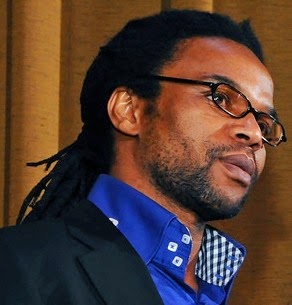© 2009 José Cossa
Studies on equity and access often use terms such as investment (returns to investment in education); capital (human, social, cultural, knowledge), educational financing (student loans, student borrowing, cost-sharing, self-financing), equity (economic, social, cultural, power, gender, racial/ethnic, linguistic); financing (micro, macro); poverty reduction; justice (economic, global, social); inclusion; and the like. Some of these terms are tied to a functionalist perception of education, which presupposes that education transforms individuals into assets (functional individuals) that contribute toward the economic development of a nation. On the other hand, these individuals are seen as commodities invested into the system and generating, in turn, economic benefits for the nation (higher level benefits) and for themselves (lower level benefits). However, it is noteworthy that I am not in any way suggesting that there is a moral value, i.e., good or bad, to this argument. This is only to say that when capital defines the educational experience of individuals, there is the underlying assumption that such individuals are a means to the end of bringing economic worth to a society and to themselves.
Feinberg and Soltis (Feinberg & Soltis, 1998) argue that compulsory education assures a replacement of older, dysfunctional habits, attitudes, and loyalties by newer, more functional ones. In adding to their argument, I argue that such education is an attempt to guarantee that individuals are transformed as functional entities that have internalized the values, attitudes, and beliefs of the society imposing them. While access is important to functionalists, it is selective access that dominates their conceptualization since society only functions well if there are differences in rewards (that is based on merit), therefore differences in our rewarding of the work done by various groups of people—genitors, carpenters, medical doctors, scientists, etc.—on the basis of the quality of contribution such professions make to society. This, too, is critical to our discussions of equity and access, since groups of people are slotted into (different slots of) the functionalist machine in order to perpetuate the ongoing differentiation, in the name of complimentarity, which is believed to bring about ‘progress’ in a given society. One of the problems with this assertion is that the differentiation is tied to historically established role-differentiations that are exploitative in nature—whether stated covertly or overtly, certain people are not naturally inclined to undertake certain professions, be it on the basis of their gender, intellectual ability, race (color), ethnicity, religion, physical ability, or any other categorization that makes them distinctly inferior to the mainstream group.
Moreover, the current literature is characterized by modern manifestations of the modernization theory. As it is with development, there is the assumption that African societies need to be modernized and that equitable access and participation in education is the vehicle to bring about a modernized Africa. Such modernization has undergone metamorphosis as the concept re-invents itself in the West. During colonialism, the modern African individual had to master the language and, to some extent, the cultural etiquette of the master; today, a modern African individual must be equipped with proficiency in English and skills in Western-based technology. While some may argue that technology is acultural or culturally impartial, this author argues that there is an inherent cultural bias in technology as such is the result of human contribution, thus not exempt from culture-bound human cognition. Consequently, while technology has brought the ICT ‘revolution’ to the African continent, equity and access are now defined, more and more, on the basis of the individual’s access to technologically-driven skills that are accepted as valuable in Western societies. The more technological skills (and English language skills, for that matter), the more employable the individual is likely to be. Assié-Lumumba (Assié-Lumumba, 2008) warns us to keep in sight that,
Education is the process through which technical skills and values are provided to the present and future generations of a society, based on internal needs carefully identified. One of the dangers in technology is to reduce knowledge to technical and piecemeal delivery. Indeed, critical knowledge must be carefully conceived, delivered, and monitored as part of the national system.
Fundamentally, equity and access should not only be evaluated by superficial means such as access to schools or technology, but should delve deeper into the nature of the knowledge being transferred by the schools attended, their overt and covert curriculum, and the technology being used.

No comments:
Post a Comment